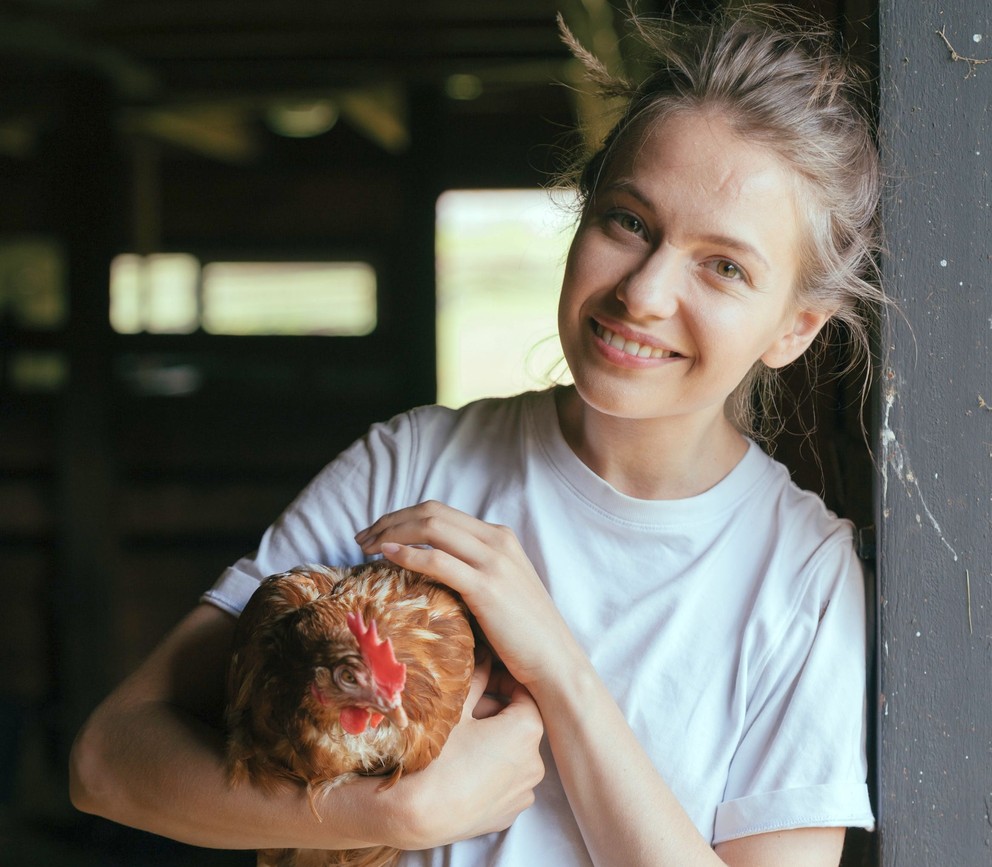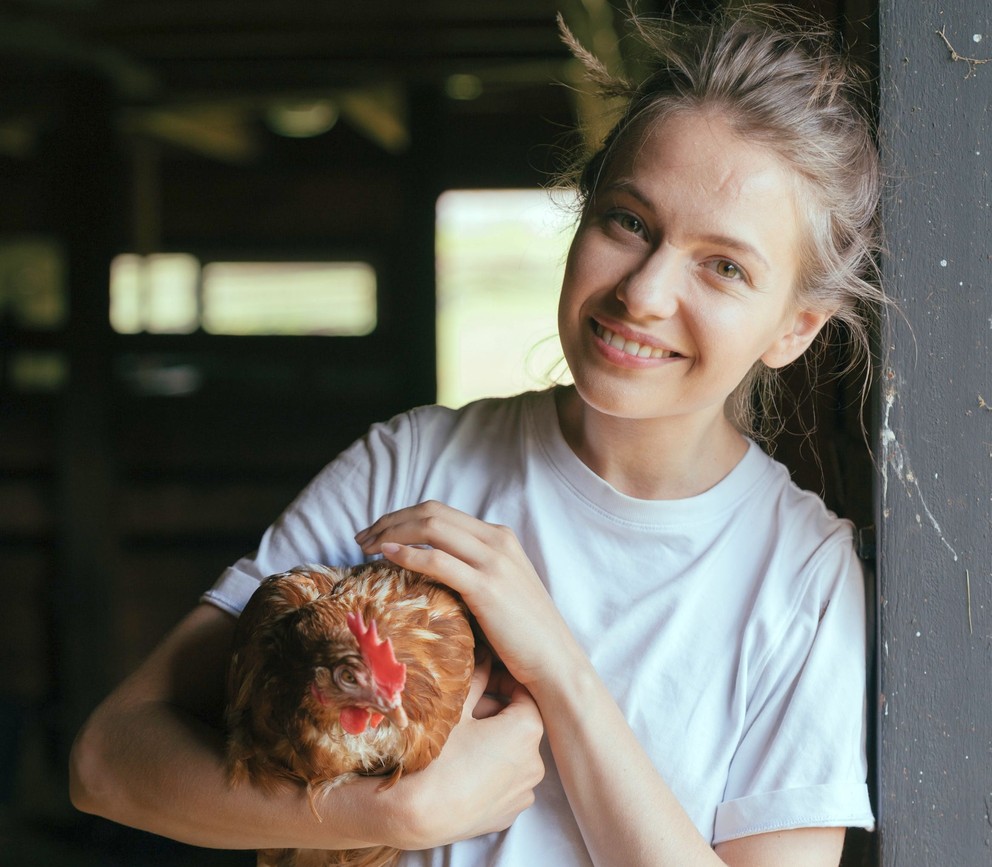



Backyard owners: love your chickens, but don't kiss them
More than 1,700 cases of Salmonella were linked to contact with poultry in backyard flocks in 2020

"Baby chicks, ducklings and even adult poultry can be incredibly cute, fluffy and fun to keep as pets," said Emily Shoop, poultry extension educator based in Mifflin and Juniata counties. "Like most pet owners, poultry keepers have been known to be quite affectionate. That being said, please do not kiss your chickens or snuggle them close to your face or mouth. This close exposure considerably increases the risk of Salmonella transmission."
According to the CDC, most types of Salmonella cause an illness called salmonellosis, during which people may suffer from diarrhea, fever, stomach cramps, nausea, vomiting or headache. Symptoms usually start six hours to six days after infection and last four to seven days.
The CDC estimates that Salmonella bacteria cause about 1.35 million infections, 26,500 hospitalizations and 420 deaths in the United States every year, with food being the source for most of these illnesses. Shoop pointed out that in 2020 and 2021, reported cases have originated from mushrooms, peaches, onions, cashew brie, bearded dragon lizards, hedgehogs, pet turtles and wild songbirds.
Last December, the CDC reported more than 1,700 cases of Salmonella linked to contact with poultry in backyard flocks during 2020. Of those, 333 people were hospitalized and one person died. More than 400 cases involved children under the age of 5. Of 876 infected individuals interviewed, 567 reported recent contact with poultry.
Through May 20, 163 poultry-related cases were reported so far this year, with 34 hospitalizations. This year's case count to date is similar to that reported in May 2020.
Shoop noted that Salmonella bacteria naturally occur as a part of the microbiomes of poultry, people, dogs, cats and thousands of other species, but not all strains cause disease symptoms.
"A completely healthy-looking bird may be a carrier of Salmonella without obvious signs of disease," she said. "When birds are carriers, they shed bacteria through their feces and mucous membranes. Humans can become infected when live poultry, eggs or manure are mishandled."
Shoop said Salmonella, like most pathogenic bacteria, are opportunistic, and those at greatest risk include children under 5 years old, adults over 65 and those with weakened immune systems.
With poultry-keeping rising in popularity — particularly during the COVID-19 pandemic — Shoop offers the following tips to help keep backyard flocks and their owners safe from Salmonella and other pathogens:
- Wash hands with soap and water immediately after handling poultry, eggs, meat, manure and equipment.
- Supervise young children's hand washing and their handling of poultry, eggs, meat, manure and equipment. Antibacterial hand sanitizer can be used if soap and water are unavailable.
- Do not allow children under age 5, adults over 65 and people with weakened immune systems to handle live poultry.
- Keep poultry away from hospitals, schools, childcare facilities and nursing homes to prevent opportunistic infections.
- Safely clean and disinfect coops. Remove dust, dirt, litter and manure first, then disinfect the equipment and housing with an approved chemical disinfectant. Be sure to follow all manufacturer's label instructions.
- Set aside separate clothing and shoes to wear while feeding and caring for your flock.
- Poultry are not house pets. Keep them outside of your home and away from food preparation areas.
- Source healthy birds to start, or add to, your flock.
- Avoid buying birds from auctions, swaps or sales without health guarantees.
- Monitor the daily health of your flock. When issues arise, contact a veterinarian or poultry professional.
- Cook eggs and meat completely before consumption.
"Backyard poultry projects can be fun for the whole family, when operating under safe and monitored conditions," Shoop added. "By all means, hold, talk to, spend time with and enjoy your backyard flocks. Just be sure to wash your hands, and please don't kiss your chickens."








